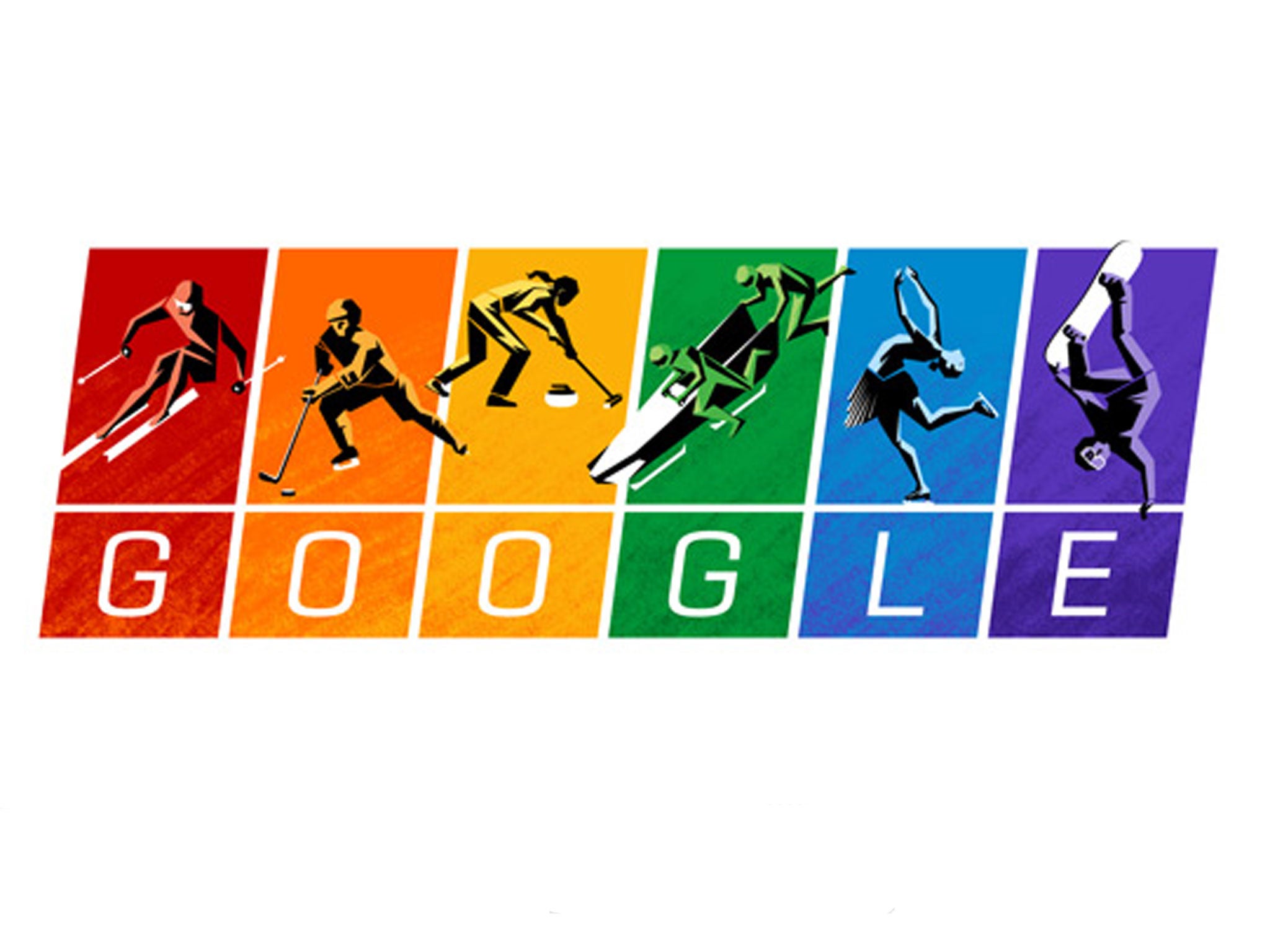Olympic Charter: Google wades into Sochi gay rights row with Doodle
Search giant takes swipe at Russia's treatment of gay people

Your support helps us to tell the story
From reproductive rights to climate change to Big Tech, The Independent is on the ground when the story is developing. Whether it's investigating the financials of Elon Musk's pro-Trump PAC or producing our latest documentary, 'The A Word', which shines a light on the American women fighting for reproductive rights, we know how important it is to parse out the facts from the messaging.
At such a critical moment in US history, we need reporters on the ground. Your donation allows us to keep sending journalists to speak to both sides of the story.
The Independent is trusted by Americans across the entire political spectrum. And unlike many other quality news outlets, we choose not to lock Americans out of our reporting and analysis with paywalls. We believe quality journalism should be available to everyone, paid for by those who can afford it.
Your support makes all the difference.Tech giant Google has waded into the row over gay rights in Russia with a provocative Google Doodle marking the start of the Sochi winter games.
The doodle, which depicts a variety of winter sports in rainbow colours above a statement from the Olympic charter, leaves no doubt about the company's feelings on Russia's treatment of gay people.
The Olympic charter is a codified list of the fundamental principles, rules and by-laws of Olympism.
In a clear swipe at Russia's gay rights record the section quoted reads:
"The practice of sport is a human right. Every individual must have the possibility of practicing sport, without discrimination of any kind and in the Olympic spirit, which requires mutual understanding with a spirit of friendship, solidarity and fair play."
Internet users clicking on the Doodle were directed to results for the Olympic charter.
The lead up to the Winter Olympics has been overshadowed by a row over Putin's regime enacting laws criminalising "gay propaganda".
There have also been concerns about the rise of attacks on gay people in the country amid increasingly aggressive rhetoric towards the LGBT community.
The anti-gay propaganda law is one of a set of new measures that are presumably seen by Putin as a way of securing the support of conservative Russians.
Google has previously taken a strong stance on human rights issues including most famously censorship in China.
The company, whose slogan is 'don't be evil' faced criticism for agreeing to censor search results in China, before changing its mind in 2010.
Join our commenting forum
Join thought-provoking conversations, follow other Independent readers and see their replies
Comments